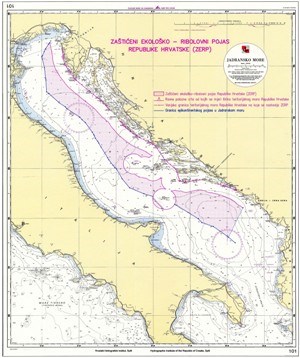


Croatian academician Davorin Rudolf said on Friday in a Croatian Radio program dedicated to the application of Croatia's Ecological and Fisheries Protection Zone (EFPZ) to EU countries that everybody should be allowed to fish in their own sea.
Rudolf, an expert on international law, said that he was irritated by a recent campaign conducted not only in the Croatian media but also by political circles with the aim of preventing the activation of the EFPZ for EU countries on January 1, 2008.
He went on to say that the media had extensively cited the minutes of a 2004 meeting between Croatia, Italy and Slovenia on the EFPZ, held in Brussels, but failed to state that the document also read that Croatia was willing to immediately commence talks on concluding a strategic agreement on fisheries with the EU.
Neither Italy nor Slovenia have done anything since the Brussels meeting to see that such an agreement is signed, although seven rounds of talks were held with Croatia, Rudolf said.
In the meantime, Italy has declared its ecological zone in the Adriatic and Slovenia has declared an economic zone and a fishing zone, Rudolf said.
Slovenia's fears that Croatia's EFPZ will prejudge the Croatian-Slovene sea border are unfounded, because all Croatian documents on the matter state that the borders of the EFPZ are temporary until the sea border with Slovenia is finally determined, Rudolf said.
He warned that the EU frequently applied international law selectively in light of the fact that all EU countries, except for Greece, had declared some form of the EFPZ, while Croatia was not being allowed to do it.
Also speaking in the program was State Secretary for the Sea Branko Bačić, who said that Croatia would treat equally illegal fishing in the EFPZ and in its territorial waters.
Bačić said he did not believe that President Stjepan Mesić had made a mistake by not having appointed the commander of the Coast Guard, adding that there was enough time to do it by April.
With the equipment it has Croatia is capable of supervising the EFPZ and punishing those who illegally enter the zone, Bačić said.
He added that the issue of fishing in the EFPZ would be settled through talks and that the fishing fleet would be renewed with 46 new boats, to be built with state assistance and loans.
Bačić said it was important that the EFPZ had been activated, that Croatia was in the process of EU accession talks and that national interests and fishermen's interests were being protected, but that Croatia should not jeopardize its accession talks.
Tonči Božanić, head of the Fishermen's Guild, said that Croatian fishing regulations were in force in the EFPZ.
At a meeting last November, Croatian fishermen proposed that fishing in the EFPZ be banned for a period of six months to help fish stocks recover from overfishing and to agree on fishing rules, Božanić said.